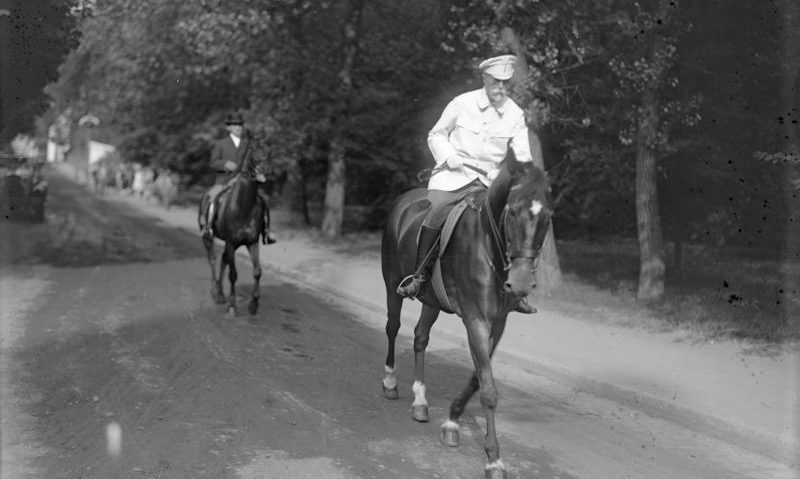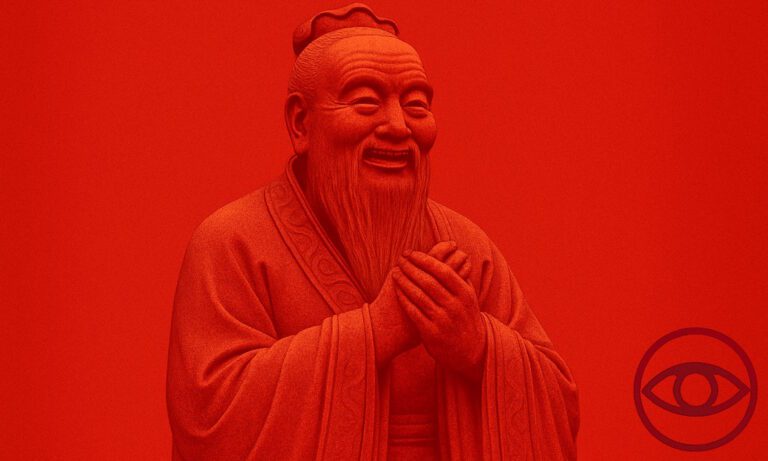Forget Communism. Two-Century-Long Identity Debate Explains Czech Stance towards China

Any noteworthy action in Czech foreign policy inevitably triggers a wave of analyses by Western pundits who find any way possible to explain the Czechs’ motives by linking them to the historical experience of Communism and Soviet dominance. The most recent example is an analysis of the spat between the late Czech Senate President Jaroslav Kubera and the Chinese Embassy in Czechia over Kubera’s planned visit to Taiwan, where Kubera’s motives were supposed to be informed by the memories of Communism in his native country.
However, any credible explanation of the idiosyncrasies of the Czech foreign policy must be much more profound than that and engage with deeply rooted currents in Czech political philosophy and history. As the social anthropologist Ladislav Holý explained, “constant reference to Czech history is part not only of much political commentary but also of much everyday political discourse. Czechs tell themselves who they are by projecting contemporary ideas and values on the narrative of the past, which in turn is invoked as their legitimation”.
Moreover, the Prague native Ernest Gellner correctly observed that “there can be few nations, (…) which live on terms of quite such constant intimacy with their own history as do the Czechs”.
The Origin of the ‘Czech Question’
Czech nation and identity-building were founded on the opposition to the Germans. The 19th-century intellectual, historian and so-called ‘father of the nation’, František Palacký, started a long pedigree of the Czech preoccupation with history by collecting all the myths that shaped the Czech political culture. Influenced by romanticism, Palacký’s somewhat naïve narrative of the hospitable, peace-loving and democratic Czechs standing against militant Germans dominated Czech political thinking for most of the 19th century.
However, an essay titled ‘Our two questions’ by Hubert Gordon Schauer, a young publicist of mixed Czech-German origin, vehemently challenged these views and caused an earthquake in the Czech intellectual circles. Schauer asked whether the Czech nation alone is capable of any contribution to the humankind, or if it is not better to assimilate with the much stronger and civilizationally advanced Germans.
Schauer’s short editorial started a four-decade-long heated intellectual debate about the identity and history of the Czech nation, known as the ‘dispute about the meaning of Czech history’. While the debate died out with the onset of the Second World War, it was clear long before then that the dominant definition of the ‘Czech question’ was that of Tomáš Garrigue Masaryk, the founding father of Czechoslovakia.
Masaryk justified the existence of smaller nations by labeling them the carriers of humanity and ethics, which he found missing on the part of large and strong nations, particularly Germans. His appeal, encapsulated in the statement “Czech concern is a human concern”, aimed at Western European audiences, while a competing attempt at distancing the Czechs from the Germans saw the rise of panslavism and an increased coziness with Russia, the only powerful Slavic nation at the time. The third strain, preservation of identity within the multiethnic Habsburg Empire, which would serve as a dam against German encroachment, died together with Austria-Hungary at the end of the First World War.
Havelists and the Pragmatists
Masaryk’s ideals were adapted and further developed by Václav Havel, a leading figure of the 1989 Velvet revolution and the first Czech president. Havel not only described the Czechs as democratic, peace-loving, moderate, and centrist; his own acts went along these lines. The anti-Communist Charter 77 was premised on the notion of non-violence, his ‘Power of the Powerless’ argued that dissidents must be fundamentally hostile towards the notion of violent change, and finally, Havel-led November 1989 revolution succeeded with no violence on the side of protesters.
In opposition to the Havelian wing, the second vision of Czech history is ‘revisionist’ and much more skeptical about the moral virtues of the Czechs. Philosopher Jan Patočka maintained that the desire to avoid violence and conflict led the Czechs to collaborate with the Nazis and the Soviets. ‘Peace- loving’ made Czechs miss out on the opportunities to play a decisive role in European history, such as in 1938. Thus, Patočka concluded, “the tragedy of the Czech nation is its aspiration to achieve through petty means a grand end”. This may explain the enormous popularity of the ‘Good Soldier Švejk’ among the Czech audience.
The dichotomy of these two approaches to Czech history is manifested in foreign politics. Politicians such as Václav Klaus or Miloš Zeman have been preoccupied with national interest (whatever that means) and were suspicious of ‘higher’ ideals and moral values invoked in foreign policies. On the other hand, Havel and politicians influenced by his thought, including the current Czech foreign minister Tomáš Petříček and Prague mayor Zdeněk Hřib, have consistently argued for a more active role of the Czech state in fighting global injustice and promoting human rights.
Somewhat ironically, both Havel and Klaus invoked Masaryk in justification of their policies. Havel would reiterate Masaryk’s notion that “the Czech question is either a world question or it is not a question at all”, while Klaus referred to Masaryk in his fight for democracy, which he saw primarily in the fight against the European Union. Klaus’s successor in the presidential office, Miloš Zeman, keeps this fight alive, though without references to Masaryk.
China as the Battleground
Czech engagement with China is similarly informed by this underlying struggle to define the purpose of Czech history and nation. Those who identify with the notion of Czechs being carriers of humanity, democracy, and peace, will naturally tend towards supporting Taiwan’s self-determination and placing human rights above economic engagement with China. On the other hand, advocates of a more skeptical vision of the Czechs’ place in history focus more on narrowly defined national interest and prefer pragmatism against the pursuit of ‘higher ideals’. In their defense they point at the Western European countries, chief among them Germany, cozying up to China and thus achieving economic benefits. Why should the Czech Republic, the argument goes, deny itself this opportunity if other democratic nations have had no qualms about it?
Due to a closer engagement with China in recent years, it was inevitable that the two groups would clash over the policy towards this country. Since China is a Communist country with a strong economy, the case of each side is more clear-cut, which further intensifies the debate. When the Chinese arrived with promises of large economic benefits five years ago, the ‘pragmatists’ were in the driving seat. President Zeman appointed a Chinese businessman as his personal advisor, Chinese president Xi Jinping arrived in Prague for a high-profile visit, and a number of Czech firms were acquired by a Chinese conglomerate.
However, as the sobering reality of meager Chinese investment slowly kicked in, it became clear that the potential of economic engagement with China was widely exaggerated. Due to the disappointment from the lack of economic benefits, combined with reports of tightening authoritarianism under Xi Jinping’s rule as well as by fears of cyberespionage, Havel’s successors are starting to dominate.
Czechs are not the only ones who stood up to China recently: Lithuanians, Estonians, Swedes, and Danes did as well. A shared memory of Communism is not what brings these countries together. As the Hungarian example shows, the memory of Communist rule might not be the defining element in an Eastern European country’s approach towards China. After all, a former anti-Communist student leader from Budapest is arguably China’s best friend in Europe nowadays.
What the Czech example demonstrates is that the reasons for these countries deviating from the approach of accommodating China are rooted in individual nations’ constructs of their identities. Communist history does certainly play a role in shaping contemporary identity; however, this role is hardly central or dominant in countries with long histories of nation-building.
Written by
Martin Šebeňa
MartinSebenaMartin Šebeňa is a PhD candidate at The University of Hong Kong and a Research Fellow at the Central European Institute of Asian Studies, a think tank based in Slovakia.


